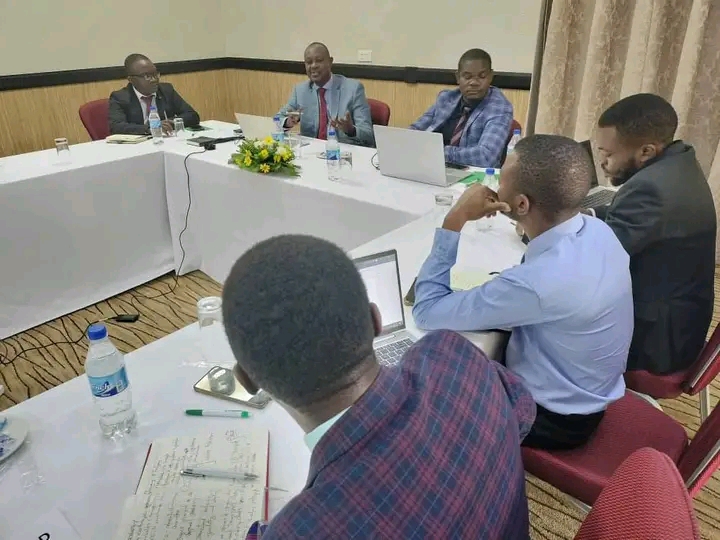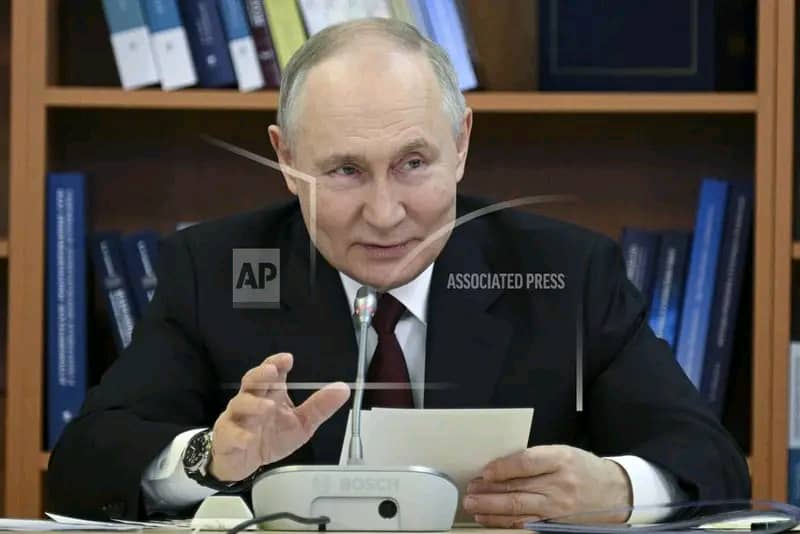Since the announcement of the removal of the fuel subsidy on May 29, 2023, petrol prices have continued to climb, heavily impacting inflation and transportation costs for both people and goods.
The continuous rise in petrol prices has pushed many Nigerians, already struggling with the high cost of living, into an even more difficult situation, especially with the increased cost of transportation.
- Young Pastors Accuse DPP of Repeating Past Failures as Government Dismisses CriticismBy Contributor A grouping calling itself the Young Pastors’ Network of Malawi has launched a blistering attack on the ruling…
- ACB Moves to Seize Assets in Explosive K36.7bn Greenbelt Authority Corruption ScandalBy Staff Reporter The Anti-Corruption Bureau (ACB) has launched a decisive crackdown on suspects implicated in the staggering K36.7 billion…
- Ansah under fire: Msiska says power strip signals total loss of confidenceBy Alinafe Linga Veteran journalist Wonder Msiska has delivered a scathing assessment of Vice President Dr. Jane Ansah’s standing in…
- FDH Bank plc declares K50 billion second interim dividend for 2025By Suleman Chitera FDH Bank Plc has declared a second interim dividend of K50.032 billion, equivalent to K7.25 per share,…
- K36.8 billion for mega farms stolen at Greenbelt AuthorityBy Vincent Gunde There have been reports that the Anti- Bureau (ACB) has arrested a number of high ranking officers…
- Lakeshore Lodge Owners Drag NWRA, Egenco to Court Over Kamuzu Barrage Flood ClaimsBy Suleman Chitera Lakeshore lodge owners from Mangochi and Salima have taken the National Water Resources Authority (NWRA) and Electricity…
- MADRA Steps In to Ease Hunger as 10,000 Ntcheu Residents Receive Lifeline Food AidBy Suleman Chitera At least 10,000 hunger-affected people from Sabwera Village in Ntcheu District have received vital relief food packs…
- Hope for Out-of-Court Settlement Emerges in Kachanga Mosque Adhan DisputeBy Suleman Chitera There is renewed hope that the high-profile legal dispute involving Asko Pesola, Kalibu Academy, and Kachanga Mosque…
- They Fought, They Spoke, They won: The activists and Journalists who broke MCP’S grip on powerBy Malawi Freedom Network This was not an accident. It was not luck. It was a calculated, relentless, and courageous…
- Brand-New 2026 Mercedes-Benz X-Class: Ultimate Luxury Pickup ,Powerful Luxury Pickup, Powerful Engine , Price, FeaturesBy Suleman Chitera The 2026 Mercedes-Benz X-Class marks the grand return of Mercedes in the premium pickup truck segment. Designed to combine luxury,…
- Comrade Jumbe urges DPP not to ignore the footstepsBy Vincent Gunde A voiceless citizen of Malawi who for four relentless years stood on the frontline against the ill…
Just last week, the Nigerian National Petroleum Corporation (NNPC) Limited announced new petrol prices at its filling stations, raising prices from around N850 to N998 in Lagos and N1,030 in Abuja.
This unprecedented hike has hit many Nigerians hard, particularly in the transportation sector. In Lagos, public transportation fares for buses, motorcycles (okada), and tricycles have quadrupled due to the increased fuel costs.
Daily Struggles of Commuters in Lagos
Commuters who rely on public transport to get to work are finding themselves unable to afford these services.Synthesize Beautiful Scenes of Ha Giang Via Super Quality Travel Video – Flycam Nem TV
News continues after this ad
“Imagine spending N4,000 daily on transport while earning less than N150,000 monthly,” said Isaac Adeolu, a regular commuter traveling from Abule Egba to Victoria Island, in an interview with Nairametrics.
Adeolu, who works six days a week, stated that the rising cost of petrol has made his daily commute unsustainable.
The situation is even grimmer for Lagos residents living in shanties and uncompleted buildings in Obalende on Lagos Island. Many earn their living through roadside trading or domestic work in more affluent areas like Ikoyi, Lekki, and Falomo.
News continues after this ad
“Transport costs have increased by over 200%, and the government isn’t doing anything about it. Every day, I have to trek from Obalende to Lekki to my place of work because if I include transport fare, I’ll be left with nothing,” said Evelyn Osagi, a domestic worker who earns N65,000 monthly, a little less than the new minimum wage.
Evelyn explained that she would spend at least N30,000 a month on transport if she had to pay for the rising fares caused by the petrol price hike.
Nairametrics found that many shanty dwellers are walking long distances to work daily because their modest incomes are no longer sufficient to cover the cost of increased transportation fares.
“We can no longer afford transport to go work,” a shanty dweller, who said she washes clothes for a living in high-class environment of Lekki, said.
E-Ride Drivers Share Their Struggles
The rise in petrol prices is also affecting commercial drivers, particularly those driving e-hailing vehicles.
Nairametrics has observed a growing trend where e-hailing drivers using platforms like Uber, In-Drive, and Bolt are now renegotiating fares with passengers directly, outside the app’s fare system.
“What can we do? The price the apps offer us can’t even buy fuel, so we have no choice but to renegotiate with our customers,” said Chukwuma Patrick, an In-Drive driver, who added that he had spent N40,000 on fuel for just two rides, barely making N25,000 in revenue. He noted that his fuel gauge was already showing red by the end of his second trip.
Before the subsidy removal, N40,000 worth of petrol would have been about 210 litres, enough to fill the tanks of three cars. Now, that same amount of fuel barely fills one car’s tank.
“Our customers understand that things are expensive now. Most of them know how much we spend on petrol daily, so when we renegotiate the price, they don’t really complain,” said Idris, an Uber driver, who mentioned that passengers now expect to pay more than the app’s listed fare due to the drivers’ struggles.
No Respite in Sight for Commuters
Despite the high cost of petrol and skyrocketing transportation fares, there appears to be no immediate relief for commuters. Energy expert Tolu Ajisafe believes that the removal of the subsidy, combined with the Nigerian National Petroleum Corporation (NNPC) stepping back from its role as the middleman between Dangote Refinery and domestic marketers, will lead to further price hikes.
“I don’t think we’ve seen the end of these price increases. The federal government seems uninterested in regulating prices anymore. NNPC is burdened with debts and foreign obligations and isn’t willing to absorb the cost,” said Ajisafe.
Ajisafe suggested that the current price of petrol is still somewhat subsidized by the government and warned that further devaluation of the naira could push petrol prices even higher. “If the exchange rate fluctuates again, petrol prices will increase. The idea that petrol is less than a dollar per litre won’t hold for long.”
For many Nigerians, the new reality of a “subsidy is gone” regime is becoming increasingly hard to bear, and they are bracing for more inflationary pressures as the situation worsens




